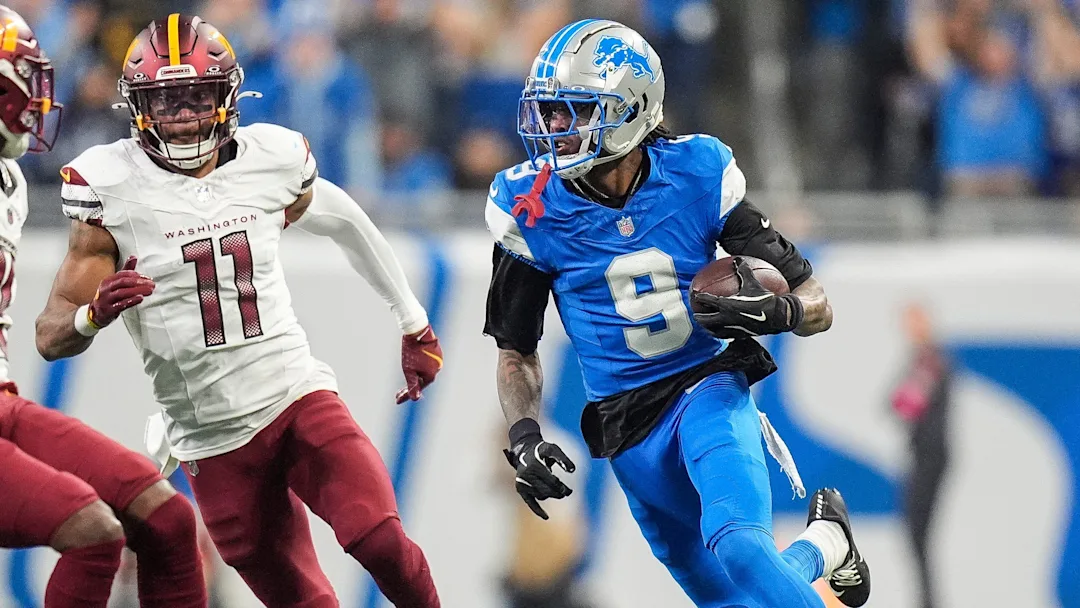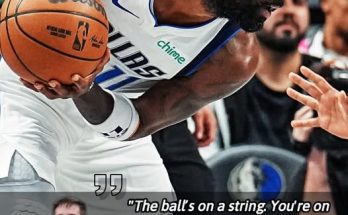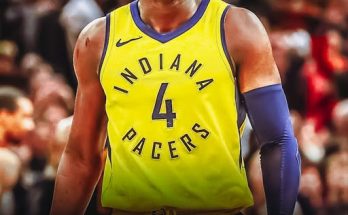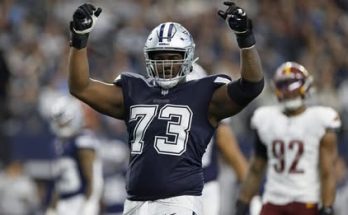Jameson Williams’ role with the Detroit Lions has always been unique, standing apart from the traditional mold that most wide receivers fall into. From the moment the Lions selected him, there was an unspoken understanding that Williams was not just another addition to their receiving corps but a transformational figure who could reshape the team’s offense in ways that defy typical expectations. His presence, influence, and evolving role on the team underscore a story of talent, resilience, and strategic innovation that continues to captivate fans and analysts alike.
To appreciate how unique Williams’ role is, one has to understand the journey that brought him to Detroit and how it has influenced his place within the team. Coming out of college, Williams was one of the most electrifying wide receivers in the draft, known for his incredible speed, agility, and ability to stretch the field vertically. At Alabama, he was a standout, turning heads with his big-play potential and capacity to break defenses apart. But what made Williams different was not just his raw athletic ability; it was his football IQ, his work ethic, and the way he connected with quarterbacks that projected him as a dynamic offensive weapon.
However, Williams’ transition to the NFL was anything but straightforward. Shortly after being drafted by the Lions, he suffered a devastating ACL injury during the College Football Playoff National Championship game, which forced him to miss his entire rookie season. This setback could have derailed his career, but instead, it highlighted the unique nature of his role in Detroit. The Lions didn’t view Williams simply as a rookie receiver who would come in and fill immediate stat sheets; they saw a player whose impact would transcend traditional measures, whose return would demand a tailored approach that maximizes his unique skill set while accommodating his recovery process.
The way the Lions structured Williams’ role upon his return was unlike most rookie experiences. Instead of thrusting him into a full-volume receiving role right away, the coaching staff crafted an offense that could evolve around his strengths without overwhelming him physically. This gradual integration was not just a health precaution; it reflected an understanding that Williams was a different kind of weapon—a player who could change the game not just by catching passes but by demanding defensive attention, creating space for teammates, and offering explosive downfield threats that shifted defensive strategies.
What makes Williams’ role truly unique is the way the Lions have leveraged his game-breaking speed and deep-threat ability to redefine their passing attack. Unlike many receivers who primarily operate from the slot or run short routes, Williams is used to stretch defenses vertically, forcing opponents to play deep coverage and opening underneath routes for other receivers and tight ends. His presence has allowed the Lions to expand their offensive playbook, incorporating more vertical routes and deep shots that can transform the rhythm of the game.
Moreover, Williams’ role is not limited to catching passes in conventional ways. The Lions have employed him in creative formations and motions that exploit his speed and open field ability. Whether it’s lining him up in the backfield for jet sweeps or designing routes that allow him to turn short catches into massive gains, Detroit’s offense revolves in part on his ability to be unpredictable and explosive. This strategic flexibility makes Williams an offensive chess piece whose value goes beyond just his catches or yards—it’s about how he changes how defenses have to prepare and play.
Another layer to the uniqueness of Williams’ role lies in the leadership and cultural impact he has within the locker room. Despite missing his rookie season and being somewhat new to the team, Williams quickly earned respect through his work ethic, professionalism, and quiet confidence. His journey back from injury and commitment to becoming a premier receiver has inspired teammates and contributed to an overall sense of belief and resilience in the Lions’ organization. That intangible leadership quality adds another dimension to his role—not just as a player on the field but as a cornerstone in the team’s identity and future vision.
Williams also symbolizes hope and potential for the Lions, a franchise that has struggled to find consistent offensive playmakers over the years. His unique role is intertwined with the organization’s broader narrative of rebuilding and returning to contention. Detroit’s willingness to be patient with him, to build an offense around his unique abilities rather than forcing a conventional role, signals a shift in the franchise’s philosophy—one that embraces innovation, player development, and a long-term vision for success.
Statistically, while Williams may not immediately put up the volume numbers that some rookie receivers do, his impact is measured in game-changing moments and how his presence alters defensive schemes. Defenses cannot simply ignore him or double cover other players without risk because Williams can exploit any lapse with his speed and route-running precision. This creates opportunities for other players and opens up the field in ways that a typical receiver cannot. The ripple effect of his presence can be seen in the improved performance of the entire offense, which becomes more dynamic, unpredictable, and potent.
Furthermore, Williams’ role highlights the evolving nature of NFL offenses in the modern era. The game increasingly values versatility, speed, and the ability to create mismatches. His unique skill set fits perfectly within this trend, as teams look to create spacing and vertical threats that stretch defenses thin. Williams is part of a new generation of receivers who are not just pass catchers but dynamic playmakers who can influence multiple facets of the offense—from blocking on outside runs to being a primary vertical threat in passing situations. Detroit’s use of Williams reflects this evolution, positioning him as a prototype for how offenses can maximize unique talents rather than conform players to rigid roles.
One cannot discuss Williams’ unique role without acknowledging the challenges and expectations that come with it. Returning from a significant injury is never easy, especially in a role that demands speed and agility. Williams has had to prove not just that he can catch passes, but that he can regain full confidence in his body, maintain his elite speed, and withstand the physicality of the NFL. His journey embodies resilience, and the Lions’ patient and strategic approach to his integration demonstrates how they value long-term impact over short-term gains.
Moreover, Williams’ role has put him in the spotlight, with fans and media watching closely to see how he performs as the team’s supposed game-breaker. This attention brings pressure but also opportunity. Williams has embraced this challenge, using it to fuel his motivation and sharpen his focus. His unique role means he is often the focal point in game plans, expected to make plays that can turn the tide of close contests. How he responds to this responsibility will likely define his legacy in Detroit and his place among the league’s elite receivers.
In addition to his on-field contributions, Williams’ role has a broader impact on the Lions’ franchise strategy, particularly regarding player development and roster construction. Having a receiver with Williams’ unique skill set influences the types of quarterbacks the Lions pursue, the offensive schemes they install, and the complementary pieces they seek around him. The team’s commitment to tailoring the offense to his strengths rather than forcing him into a pre-existing system shows a forward-thinking mindset that could shape the franchise’s trajectory for years.
The unique nature of Williams’ role is also reflected in how the Lions manage his workload and involvement in games. Rather than overwhelming him with constant targets, the coaching staff strategically deploys him in high-impact situations where his chances of success and game-changing plays are maximized. This targeted use not only protects him physically but also ensures that he remains fresh and explosive when it matters most. This strategic utilization differs from traditional receiver roles that emphasize volume and accumulation of stats but might not harness a player’s true game-breaking potential.
Off the field, Williams’ unique role extends into his relationship with fans and the community. As a high-profile player who overcame adversity, he has become a symbol of hope and perseverance in Detroit. His work ethic and humility have endeared him to the fanbase, who see in him not just a talented athlete but a representation of what the Lions aspire to be—a team that overcomes challenges and strives for greatness. Williams’ engagement with the community, charity efforts, and approachable personality further deepen his connection to Detroit, making his role unique beyond the football field.
Looking forward, the potential of Williams’ role remains vast and exciting. As he continues to regain full health and chemistry with his teammates, there is every reason to believe that his influence will grow even more profound. The Lions’ offense can become one of the most dynamic in the league, with Williams as the cornerstone around which creativity and explosiveness are built. His unique role means he is not just another cog in the machine but a pivotal figure whose performance can elevate the entire team.
In sum, Jameson Williams’ role with the Detroit Lions has always been unique because it transcends the conventional expectations of a wide receiver. It embodies resilience, innovation, strategic utilization, and leadership. His journey from a highly touted college star through injury adversity to becoming a vital piece in Detroit’s offense highlights the special nature of his contribution. Williams is not merely catching passes; he is reshaping how the Lions play, think, and compete. His role is a testament to his talent, character, and the Lions’ commitment to building around a once-in-a-generation talent whose impact goes far beyond the stat sheet.



